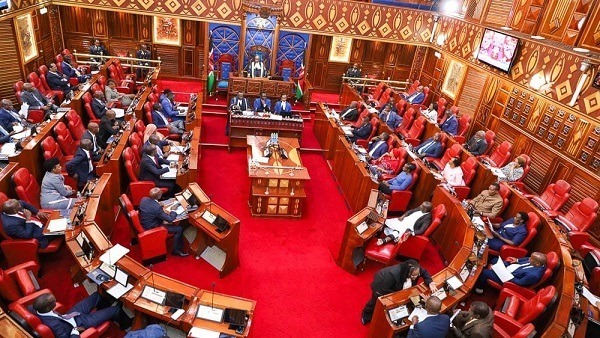

A push to compel governors to implement development projects across all wards within their counties has suffered a major setback in the Senate.
The Justice and Legal Affairs Committee has rejected the County Wards (Equitable Development) Bill, 2024, which aimed to guarantee equitable development across wards, removing reliance on the governors’ goodwill.
Instead, the committee recommended that each county should develop its own legislation or policy to guide ward-level development.
“The provisions of the Bill should form the basis of county-specific frameworks for ward-based development projects,” the committee, chaired by Bomet Senator Hillary Sigei, said in its report.
The committee urged all 47 counties to adopt the principles of the Bill through local legislation and emphasised the importance of public participation during the development of County Integrated Development Plans (CIDPs).
“Counties should carry out extensive public participation at the ward level to identify priority projects to be included in CIDPs,” the report stated.
Further, the panel recommended that county assemblies ensure development projects proposed in CIDPs and annual development plans are equitably distributed. The Bill, sponsored by Kiambu Senator Karungo Thang’wa, argued that governors often sideline wards whose MCAs are not politically aligned with them, leading to unequal development.
“This Bill promotes the objects of devolution set out under Article 174 of the constitution by providing a legal framework that ensures equitable development across all wards in each county,” the Bill reads.
MCAs from various counties have voiced concerns over the political marginalisation of their wards in development planning.
The Bill proposed that county governments allocate resources equitably across all wards and that development projects be distributed fairly within the medium term.
It also tasked the Commission on Revenue Allocation with advising county finance executives on criteria for allocating funds to ensure fairness in ward-level development.
Projects would be identified through public participation, coordinated by the county executive committee member for finance.
The CEC could also establish a Ward Projects Identification Committee—an ad hoc body comprising representatives from the business community, youth, women and men, professionals, persons with disabilities and the ward administrator—to facilitate this process. “The CEC member shall consolidate and submit the proposals received from the public to the county executive committee for prioritisation and determination of projects for implementation in each ward,” the Bill states.
After that, the finance CEC would submit a report on the identified projects to the county assembly. Approved projects would be publicised via the county gazette and other communication channels.
When approving projects, the county executive and assembly are to ensure that the projects are community-based and focused on improving infrastructure for the delivery of essential services at the grassroots.
The Bill also mandates the timely and efficient disbursement of funds and requires that funds allocated for projects not be diverted for other uses during the financial year without county assembly approval.
If a project is cancelled or discontinued, the funds were to be redirected to another project within the same ward. The Bill spells out tough punishment for any impropriety with funds meant for ward projects.
“Any person who misappropriates any funds or assets from the Fund or assists or causes any person to misappropriate or apply the funds otherwise than in the manner provided in this Act commits an offence.”












